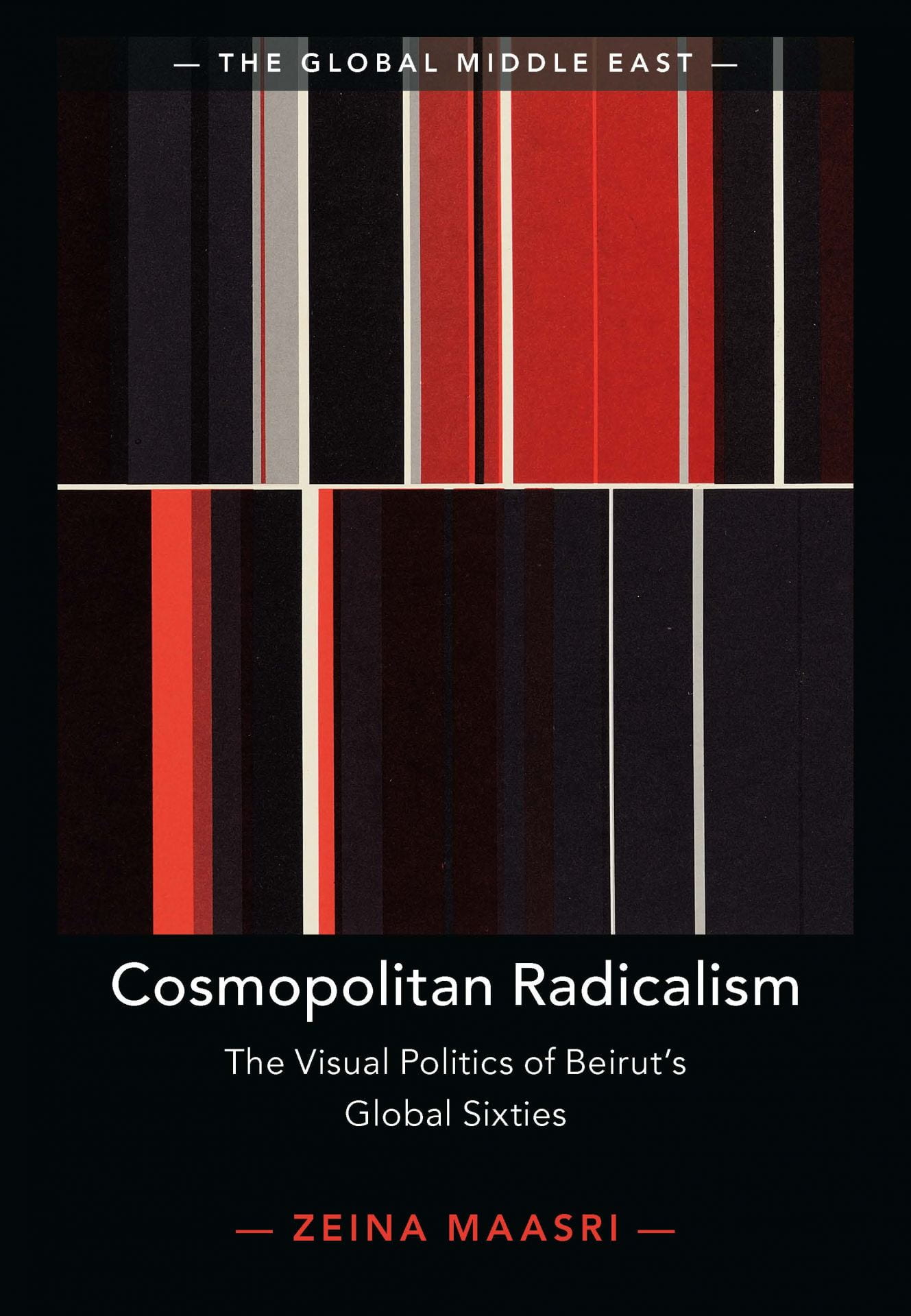The Centre for Design History are delighted to announce that Dr. Zeina Maasri’s new book, Cosmopolitan Radicalism: The Visual Politics of Beirut’s Global Sixties, has recently been published with Cambridge University Press. Her book builds and expands on her funded doctoral studies in History of Design and Material Culture at the University of Brighton and is the outcome of 10 years of research between Lebanon and the UK.
Cosmopolitan Radicalism examines the intersections of visual culture, design and politics in the global sixties. It demonstrates how fluid, yet politically articulated, transnational circuits of modernism converged and contended with one another in the context of Beirut, from the late 1950s to the mid-1970s. Caught between two violent moments in Lebanon’s history, Beirut’s long 1960s was also marked by processes of decolonization and complicated by a Cold War order. Against any celebratory reminiscence of the “golden years”, this book conceives of Beirut as a nodal city in the global 1960s, a liminal juncture and an anxious time and space when the city held out promises at once politically radical and radically cosmopolitan.
Drawing from uncharted archives of everyday printed matter, Cosmopolitan Radicalism sheds light on understudied graphic design practices in the modern Arab East and modes of translocal visuality attached to print technologies. It also critically engages with another similarly ignored facet of Arab postcolonial history: the transnational movement of cultural actors across Arab state borders and the mobility of visual and print cultures. It proposes that these cross-border graphic design practices and mobile cultural artefacts need to be examined outside of nationally circumscribed frameworks. Thus, the analysis situates travelling artists/designers, images/printed objects, political discourses and aesthetic experiences within the disjunctive cultural flows of the global sixties—at the interface of new modes of consumption and leisure with cultural revolutions, amidst shifting geographies of imperial power and emerging radical forms of anticolonial resistance, revolutionary anti-imperialism and transnational solidarity.
It is an exciting moment for this book to come out as it contributes to emerging debates in design history around questions of global modernity and transnational modernism, art/ design activism in contexts of decolonization, as well as providing useful methodologies for decolonizing and decentring design history.
Cosmopolitan Radicalism was awarded the Design History Society Research Publication Grant in 2019 and benefitted from further support, both intellectual and financial, from Centre for Design History, CAPPE, CMNH and the School of Humanities at Brighton.




Leave a Reply